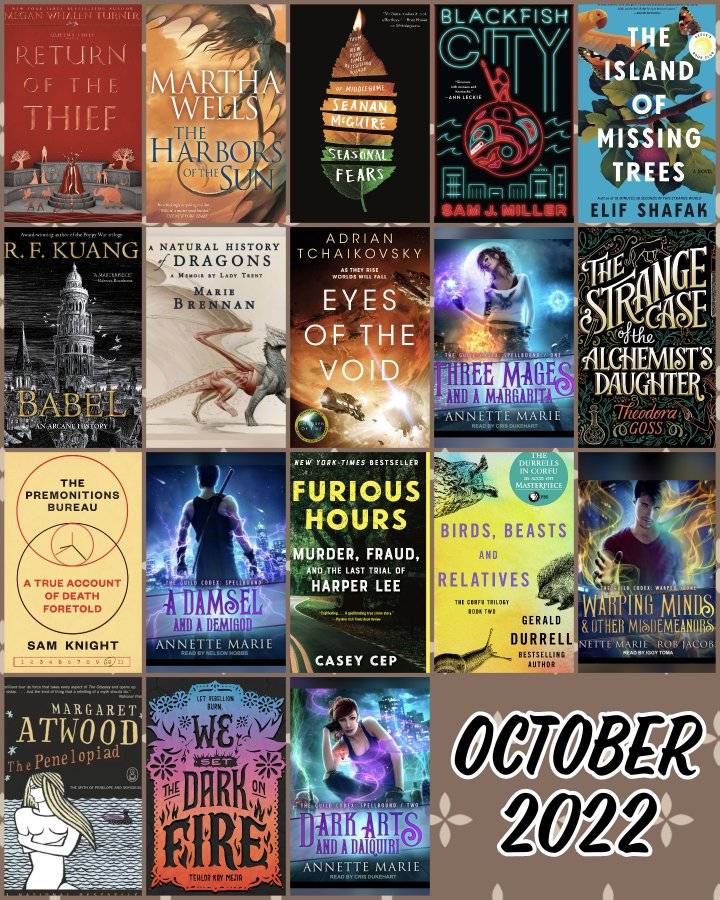
The Return of the Thief, by Megan Whalen Turner
The Harbors of the Sun, by Martha Wells
Seasonal Fears, by Seanan McGuire
Blackfish City, by Sam J. Miller
The Island of Missing Trees, by Elif Shafak
Babel, by R.F. Kuang
A Natural History of Dragons: A Memoir of Lady Trent, by Marie Brennan
Eyes of the Void, by Adrian Tchaikovsky
Three Mages and a Margarita, by Annette Marie
The Strange Case of the Alchemist’s Daughter, by Theodora Goss
The Premonitions Bureau: A True Account of Death Foretold, by Sam Knight
A Damsel and a Demigod, by Annette Marie, read by Nelson Hobbs
Furious Hours: Murder, Fraud, and the Last Trial of Harper Lee, by Casey Cep
Birds, Beasts, and Relatives, by Gerald Durrell
Warping Minds and Other Misdemeanors, by Annette Marie, read by Iggy Toma
The Penelopiad, by Margaret Atwood
We Set the Dark on Fire, by Tehlor Kay Mejia
Dark Arts and a Daiquiri, by Annette Marie, read by Cris Dukehart
